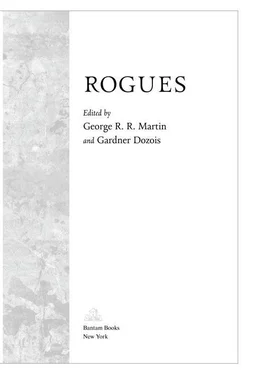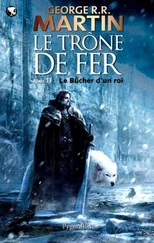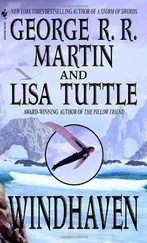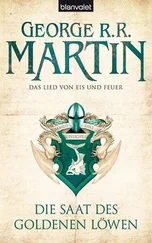“He was getting all handsy with young Jenna,” Cob said, not looking up from his beer. “And she was younger still back then, mind you.” He paused for a moment, then sighed. “But I was still old, and … well … I knew that tinker would give me a hiding if I tried to stop him. I could see that plain enough on his face.” The old man sighed. “I ain’t proud of that.”
Cob looked up with a vicious little grin. “Then Martin came round the corner,” he said. “This was off behind the old Cooper’s place, remember? And Martin looked at the fellow, and at Jenna, who wasn’t crying or nothing, but she obviously wasn’t happy either. And the tinker has hold of her wrist …”
Cob shook his head. “When he hit him. It was like a hammer hitting a ham. Knocked him right out into the street. Ten feet, give or take. Then Martin eyed Jenna, who was crying just a bit then. More surprised than anything. And Martin stuck the boot in him. Just once. Not as hard as he could, either. I could tell he was just settling up accounts in his head. Like he was a moneylender shimming up one side of his scale.”
“That fellow wasn’t any kind of proper tinker,” Jake said. “I remember him.”
“And I heard things about that priest,” Graham added.
A few of the others nodded wordlessly.
“What if Jessom comes back?” the smith’s prentice asked. “I heard some folk get drunk and take the coin, then turn all cowardly and jump the rail when they sober up.”
Everyone seemed to consider that. It wasn’t a hard thought for any of them. A band of the king’s guard had come through town only last month and posted a notice, announcing a reward for deserters.
“Tehlu anyway,” Shep said grimly into his nearly empty mug. “Wouldn’t that be a great royal pisser of a mess?”
“Jessom’s not coming back,” Bast said dismissively. His voice had such a note of certainty that everyone turned to eye him curiously.
Bast tore off a piece of bread and put it in his mouth before he realized he was the center of attention. He swallowed awkwardly and made a broad gesture with both hands. “What?” he asked them, laughing. “Would you come back, knowing Martin was waiting?”
There was a chorus of negative grunts and shaken heads.
“You have to be a special kind of stupid to wreck up Martin’s still,” Old Cob said.
“Maybe eight years will be enough for Martin to cool down a bit,” Shep said.
“Not likely,” Jake said.
Later, after the customers were gone, Bast and the innkeeper sat down in the kitchen, making their own dinner from the remainder of the stew and half a loaf of bread.
“So what did you learn today, Bast?” the innkeeper asked.
Bast grinned widely. “Today, Reshi, I found out where Emberlee takes her bath!”
The innkeeper cocked his head thoughtfully. “Emberlee? The Alards’ daughter?”
“Emberlee Ashton!” Bast threw his arms up into the air and made an exasperated noise. “She’s only the third prettiest girl in twenty miles, Reshi!”
“Ah,” the innkeeper said, an honest smile flickering across his face for the first time that day. “You’ll have to point her out to me.”
Bast grinned. “I’ll take you there tomorrow,” he said eagerly. “I don’t know if she takes a bath every day, but it’s worth the gamble. She’s sweet as cream and broad of beam.” His smile grew to wicked proportions. “She’s a milkmaid, Reshi,” he said the last with heavy emphasis. “A milkmaid. ”
The innkeeper shook his head, even as his own smile spread helplessly across his face. Finally he broke into a chuckle and held up his hand. “You can point her out to me sometime when she has her clothes on,” he said pointedly. “That will do nicely.”
Bast gave a disapproving sigh. “It would do you a world of good to get out a bit, Reshi.”
The innkeeper shrugged. “It’s possible,” he said as he poked idly at his stew.
They ate in silence for a long while. Bast tried to think of something to say.
“I did get the carrots, Reshi,” Bast said as he finished his stew and ladled the rest of it out of the kettle.
“Better late than never, I suppose,” the innkeeper said his voice was listless and grey. “We’ll use them tomorrow.”
Bast shifted in his seat, embarrassed. “I’m afraid I lost them afterwards,” he said sheepishly.
This wrung another tired smile from the innkeeper. “Don’t worry yourself over it, Bast.” His eyes narrowed then, focusing on hand that held Bast’s spoon. “What happened to your hand?”
Bast looked down at the knuckles of his right hand, they weren’t bloody anymore, but they were skinned rather badly.
“I fell out of a tree,” Bast said. Not lying, but not answering the question, either. It was better not to lie outright. Even weary and dull, his master was not an easy man to fool.
“You should be more careful, Bast,” the innkeeper said, prodding listlessly at his food. “And with as little as there is to do around here, it would be nice if you spent a little more time on your studies.”
“I learned loads of things today, Reshi,” Bast protested.
The innkeeper sat up, looking more attentive. “Really?” he said. “Impress me then.”
Bast thought for a moment. “Nettie Williams found a wild hive of bees today,” he said. “And she managed to catch the queen …”
Hugo, Nebula, and World Fantasy Award-winner George R. R. Martin, New York Times bestselling author of the landmark A Song of Ice and Fire fantasy series, has been called “the American Tolkien.”
Born in Bayonne, New Jersey, George R. R. Martin made his first sale in 1971, and soon established himself as one of the most popular SF writers of the seventies. He quickly became a mainstay of the Ben Bova
Analog
with stories such as “With Morning Comes Mistfall,” “And Seven Times Never Kill Man,” “The Second Kind of Loneliness,” “The Storms of Windhaven” (in collaboration with Lisa Tuttle, and later expanded by them into the novel
Windhaven
), “Override,” and others, although he also sold to
Amazing, Fantastic, Galaxy, Orbit,
and other markets. One of his
Analog
stories, the striking novella “A Song for Lya,” won him his first Hugo Award, in 1974.
By the end of the seventies, he had reached the height of his influence as a science-fiction writer and was producing his best work in that category with stories such as the famous “Sandkings,” his best-known story, which won both the Nebula and the Hugo in 1980 (he’d later win another Nebula in 1985 for his story “Portraits of His Children”), “The Way of Cross and Dragon,” which won a Hugo Award in the same year (making Martin the first author ever to receive two Hugo Awards for fiction in the same year, “Bitterblooms,” “The Stone City,” “Starlady,” and others. These stories would be collected in
Sandkings,
one of the strongest collections of the period. By now, he had mostly moved away from
Analog
although he would have a long sequence of stories about the droll interstellar adventures of Havalend Tuf (later collected in
Tuf Voyaging
) running throughout the eighties in the Stanley Schmidt
Analog,
as well as a few strong individual pieces such as the novella “Nightflyers”—most of his major work of the late seventies and early eighties, though, would appear in
Omni
. The late seventies and the eighties also saw the publication of his memorable novel
Dying of the Light
, his only solo SF novel, while his stories were collected in
Читать дальше












